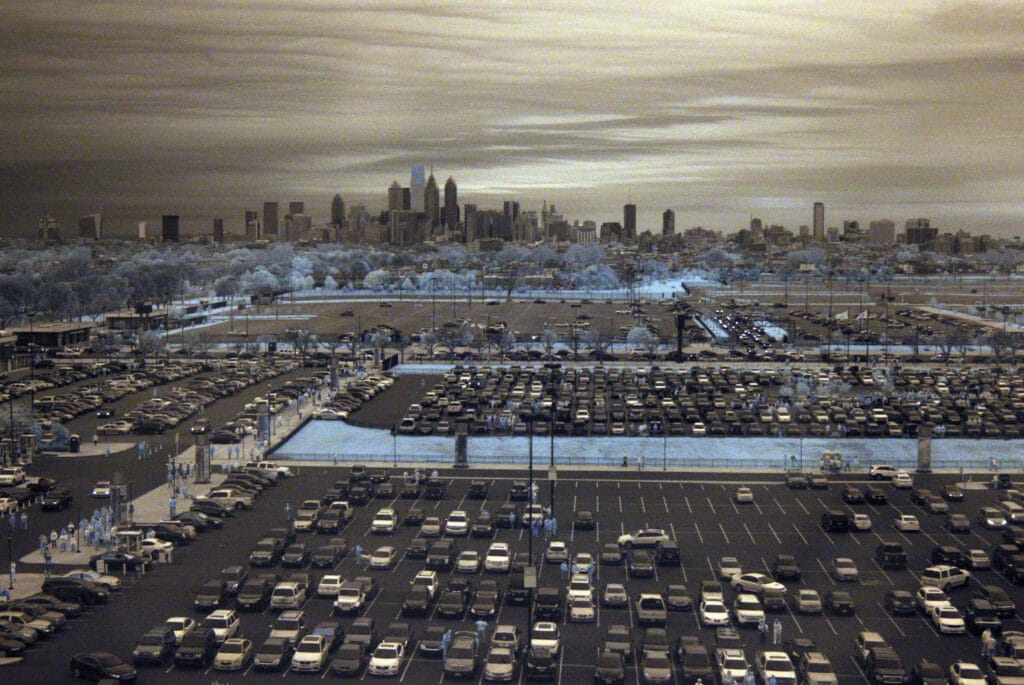Philadelphia set to become first major US city to ban low-level traffic stops
The landmark Driving Equality bill will take effect 120 days after Philadelphia Mayor Jim Kenney signs the bill this week
Philadelphia will soon become the first major city to ban police from stopping motorists for low-level traffic violations.
Mayor Jim Kenney plans to sign the bill to make it official this week, as reported by CNN.
The legislation, titled the Driving Equality Bill, is aimed at addressing the fact that drivers who are stopped for traffic violations are disproportionately Black. The bill categorizes specific motor vehicle code violations that require cops to stop motorists for public safety as “primary violations.”
Violations that do not meet that criteria will be called “secondary violations,” meaning that police officers cannot pull over the motorists for those reasons.
A general view of the Philadelphia city skyline prior to the game between the Philadelphia Flyers and the New York Rangers in Game Four of the First Round of the 2014 NHL Stanley Cup Playoffs at the Wells Fargo Center on April 25, 2014 in Philadelphia, Pennsylvania. (Photo by Bruce Bennett/Getty Images)
Examples of a secondary violation include bumper issues, registration plate not being clearly displayed or visible, single brake light, headlight, or running light not coming on, driving a vehicle without an official inspection certificate, unlawful operation without evidence of emission inspection and having a vehicle nor registered within sixty days of an observed infraction or bumper issues, as reported by WTXF-TV.
The bill was authored by City Councilmember Isaiah Thomas and passed the body on a 14 – 2 vote. Once Kenney signs the bill, it will go into effect 120 days later. Thomas told CNN that he wanted to deal with “the tension between police and community members by removing negative interactions” when he first wrote the bill a year ago.
“I am humbled by every person who told my office of the humiliation and trauma experienced in some of these traffic stops,” Thomas said. “Too many people who look like me, a traffic stop is a rite of passage — we pick out cars, we determine routes, we plan our social interactions around the fact that it is likely that we will be pulled over by police.”
Of the 310,000 traffic stops that occurred between October 2018 and September 2019, 72% of the drivers were Black, according to the Philadelphia Inquirer. In 2021, 67% of the traffics stops included Black drivers, compared to only 12% of the drivers being white. This is all despite the fact that Black people make up about 43% of Philadelphia’s population compared to 40% white.
Moreover, about 97% of Philadelphia traffic stops would be classified as low-level violations, and the new law would be projected to reduce police and motorist encounters by more than 300,000.
Although Philadelphia will be the first major city to pass such legislation, lawmakers elsewhere have adopted similar traffic bills.
In March, Virginia passed a bill with the same parameters, banning traffic stops for low-level violations, according to WSLS-TV. In September, Ramsey County in Minnesota passed a bill that banned felony prosecutions resulting from non-public safety traffic stops, as reported by WCCO-TV.
The post Philadelphia set to become first major US city to ban low-level traffic stops appeared first on TheGrio.

